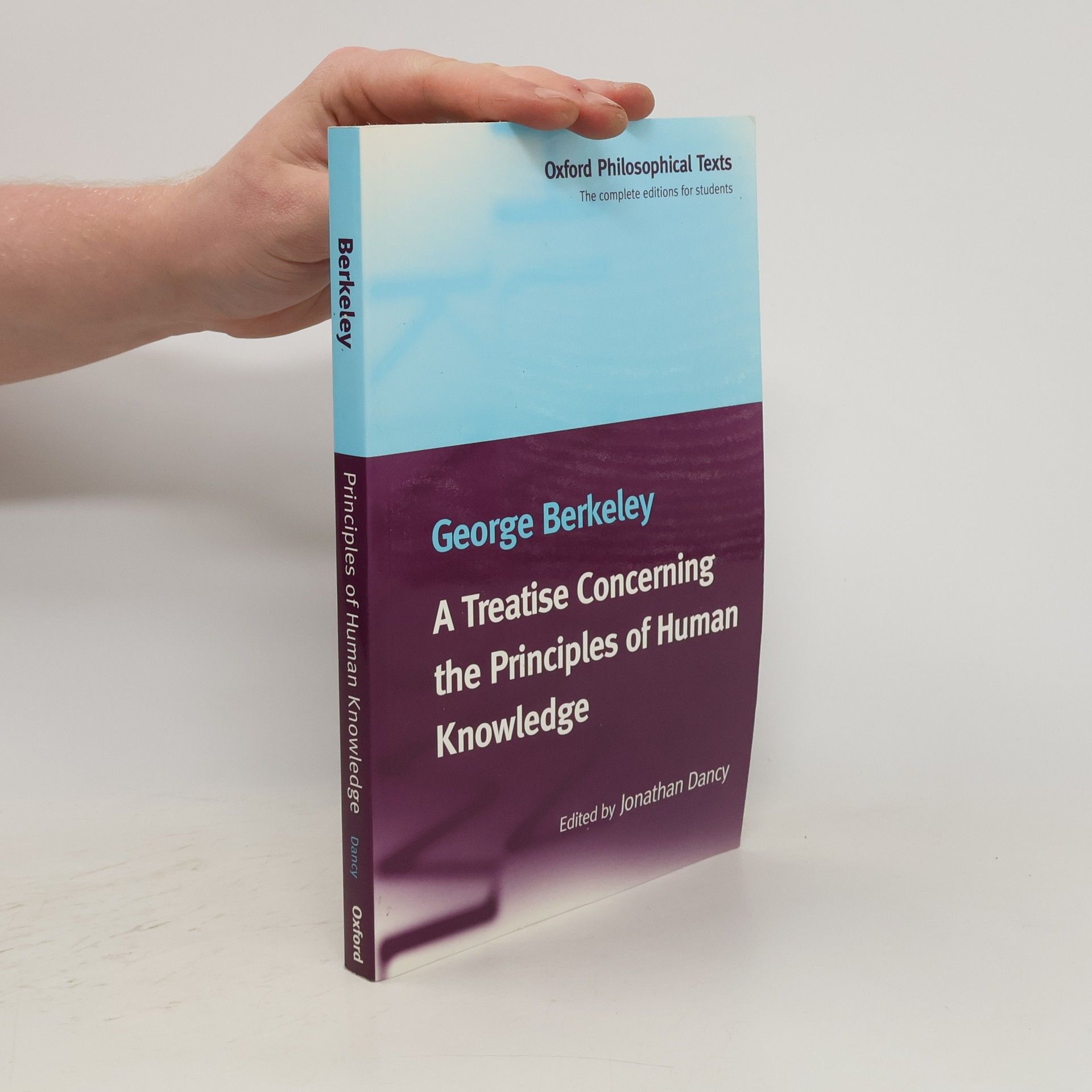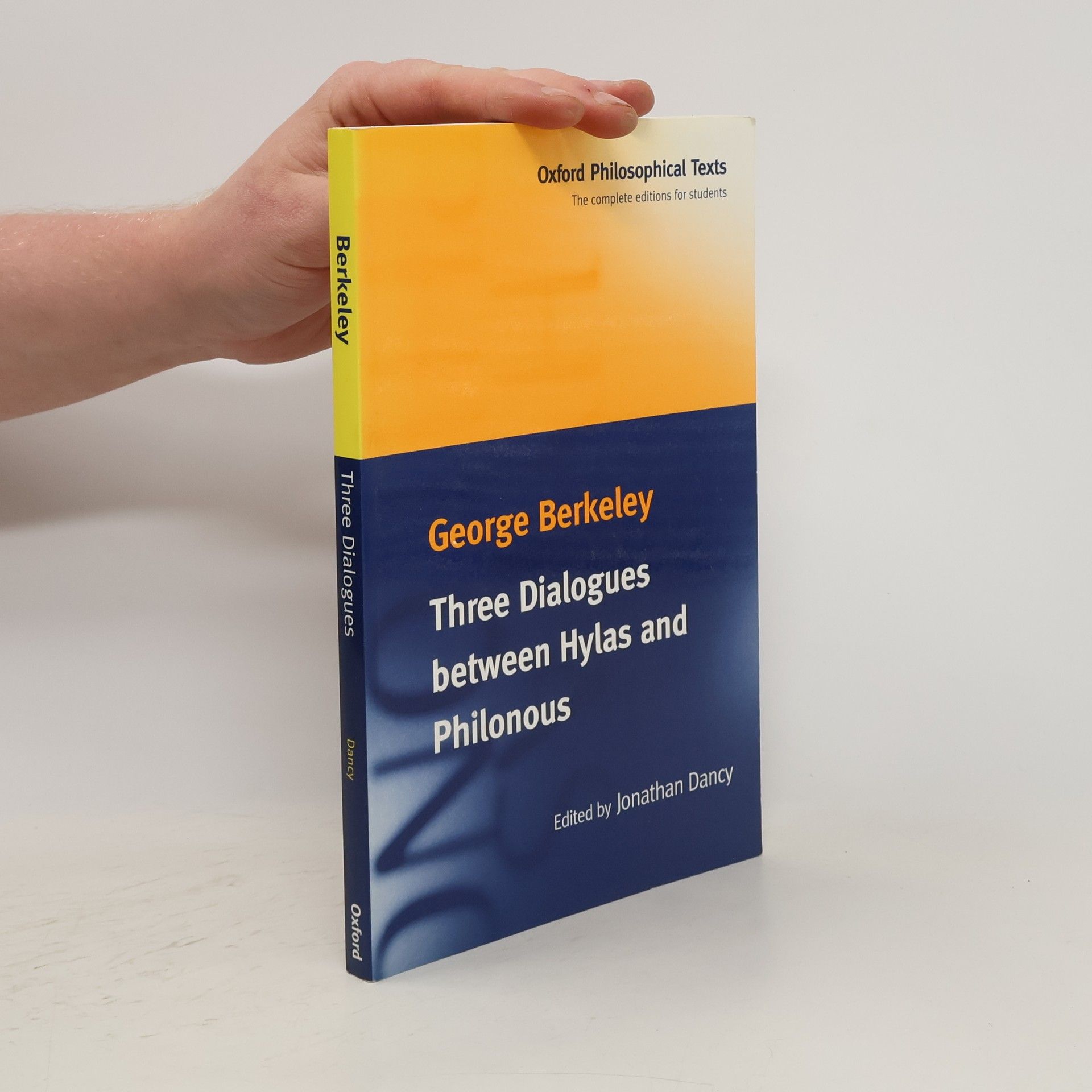George Berkeley Livres







Philosophical Commentaries by George Berkeley
Transcribed From the Manuscript and Edited with an Introduction by George H. Thomas, Explanatory Notes by A.A. Luce
- 398pages
- 14 heures de lecture
The edition of Berkeley's Philosophical Commentaries features an accurate transcription of his manuscript, accompanied by an insightful introduction that contextualizes the work. Extensive notes are included to assist readers in interpreting the text, along with a comprehensive index for easy navigation. This edition aims to enhance the understanding of Berkeley's philosophical insights.
Principles of Human Knowledge and Three Dialogues Between Hylas and Philonous
- 150pages
- 6 heures de lecture
Subjective idealism is the central theme explored in this influential work by George Berkeley, an Irish philosopher. In "Principles of Human Knowledge," he argues that reality is shaped by human perception, dismissing any external reality beyond our senses. The book faced criticism from contemporaries like John Locke, prompting Berkeley to respond with "Three Dialogues Between Hylas and Philonous," which presents a dialogue addressing these objections. Together, these works delve into complex philosophical ideas such as conceptual relativity and phenomenalism, making them essential reading for philosophy students.
This collection features a diverse range of timeless classics, spanning from ancient texts to modern favorites. It honors the pioneers and legends of literature, showcasing their significant contributions to the literary world. Each selected work reflects the enduring power of storytelling and the impact of these influential writers.
This student edition of Berkeley's 'Principles of Human Knowledge' includes the four letters between George Berkeley and Samuel Johnson, written in 1729-30. The text is supplemented by a comprehensive introduction, an analysis of the text, a glossary, detailed notes, and a full bibliography with guidance on further reading.
The Works of George Berkeley Bishop of Cloyne; 8
- 328pages
- 12 heures de lecture
The Works of George Berkeley Bishop of Cloyne; 7
- 408pages
- 15 heures de lecture
Selected for its cultural significance, this work contributes to the foundational knowledge of civilization. It is recognized by scholars for its importance in understanding historical and societal contexts, making it a valuable resource for those interested in the evolution of human thought and culture.
This publication focuses on making historical works accessible through large print, catering specifically to individuals with impaired vision. Megali, the publishing house behind this initiative, prioritizes the reproduction of original texts, ensuring that important historical literature remains available to a wider audience.
The Querist; Containing Several Queries Proposed to the Consideration of the Public
in large print
- 144pages
- 6 heures de lecture
The book is a reproduction of a historical work, presented in large print to enhance accessibility for readers with impaired vision. Published by Megali, a company dedicated to making historical texts more readable, it aims to preserve important literature while ensuring it is accessible to a wider audience.
Three Dialogues Between Hylas and Philonous in Opposition to Sceptics and Atheists
in large print
- 168pages
- 6 heures de lecture
Focusing on accessibility, this publication by Megali aims to provide historical works in large print format, catering specifically to individuals with impaired vision. By reproducing original texts, it enhances readability and ensures that important historical content is available to a broader audience.